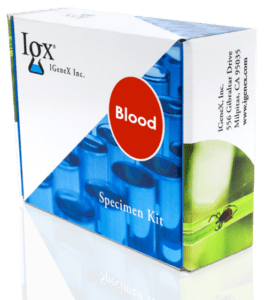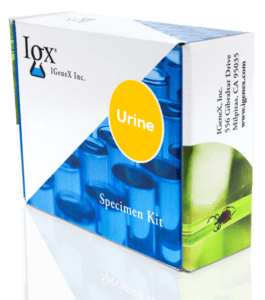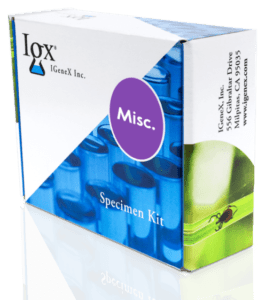Navigating health issues can be one of the most challenging things a person can go through. This is definitely true when it comes to tick-borne diseases. These infections can turn into chronic diseases spread by bacteria, viruses, or parasites transmitted by a tick bite.
We know how frustrating it can be to find suitable treatment protocols or tools to help you manage your symptoms. Let alone receive the correct diagnosis in the first place. However, knowing where to go for support and to ask questions can be a game changer. We’re here to offer some clarity on what Lyme disease resources are available while you navigate a tick-borne disease.
Centers for Disease Control and Prevention (CDC)
The CDC website is a great introductory lyme disease resource for those who are just beginning to research tick-borne diseases. For example, you can find data on the distribution of ticks and tick-borne diseases in the U.S. and the rest of the world.
Their website also offers information on tick bite prevention, guidance on tick identification, and how to check for ticks and safely remove one if you do get bit. The healthcare providers of the U.S. manual for tick-borne diseases is a detailed guide for tick identification, symptoms, and treatment options.
However, the CDC should not be someone’s primary source of information about ticks and tick-borne diseases. Other sites, like those listed in this article, should be supplemented in to provide a more rounded, informative perspective.
ILADS
The International Lyme and Associated Diseases Society, ILADS, is an international non-profit dedicated to treating and diagnosing Lyme and other tick-borne diseases appropriately.
They are a medical society composed of providers from multiple disciplines that spearhead clinical research programs, aim to improve healthcare provider understanding, and advance the standard of care for people with tick-borne diseases. One of the ways they support healthcare providers is by developing and implementing programs, with educational materials and protocols on Lyme disease.
Tick Tracker App
Created by Olivia Goodreau, TickTracker is an app that allows users to log and track ticks in their area. Inspiration hit the then 13-year-old when she was on vacation with her family and saw a tick start to burrow into their dog, Mo’s, leg. Olivia faced an arduous journey with her tick-borne illness- she saw over 50 doctors before her she was properly, accurately diagnosed. She found that at the time, no app existed that allowed people to track, report, and educate people about ticks.
With the goal of keeping people safe from tick-borne diseases, the app features a tick map that uses real-time tick tracking along with other data so that people can see the tick severity in their areas. Along with TickTracker, Olivia founded the LivLyme Foundation, a non-profit dedicated to supporting research and science on Lyme disease treatment.
The foundation also provides education and financial assistance to children with Lyme disease and their families.

Global Lyme Alliance
The Global Lyme Alliance is a non-profit organization dedicated to preventing, diagnosing, and treating Lyme disease and other tick-borne diseases. In addition, the organization provides up-to-date information on tick-borne diseases, including the latest research and treatment options.
Their mission is to cure Lyme disease and other tick-borne diseases through awareness, innovative research, and empowering patients’ voices. The alliance also offers support and resources for individuals who have been diagnosed with tick-borne diseases, as well as information on advocacy and fundraising initiatives. In addition to these initiatives, Global Lyme Alliance features a peer-to-peer program. This lyme disease resource enables people to connect with others and seek support and solidarity in those who have similar experiences with tick-borne diseases.
Bay Area Lyme Foundation
Bay Area Lyme Foundation is a national non-profit organization based in Silicon Valley and collaborates with world-class scientists and institutions to accelerate medical breakthroughs for Lyme disease. It is also dedicated to providing reliable, fact-based information so that prevention and the importance of early treatment are common knowledge.
The mission at Bay Area Lyme is to make Lyme disease easy to diagnose and simple to cure. They are also active in the community, with school programs and information sessions at community events, public service campaigns, and strategic partnerships.
IGeneX
Of course, the team at IGeneX is also here to support you. On our website, you can find resources like the knowledge center, articles, and a symptom checker to help determine if you may have a tick-borne disease.
Getting the proper diagnosis can be one of the most challenging parts of treating tick-borne diseases. We offer the most comprehensive, reliable, and accurate testing available for tick-borne infections so that you can get the treatment you need.
LymeLight Foundation
The LymeLight Foundation is dedicated to providing grants so that children and young adults with Lyme disease can receive medication and proper treatment. Much of their work also revolves around raising awareness about the disease.
Their website’s “Stories of Hope” section offers inspirational anecdotes from young people who have received treatment through the foundation. Lyme disease treatment can be incredibly expensive. The LymeLight Foundation makes it simple for people who need financial support to access it.
Generation Lyme
Navigating a chronic illness is complicated enough on its own, but the feelings of isolation it can bring up make it much more difficult. Generation Lyme is here to change that by building a community dedicated to empowering people with Lyme disease.
They have meetups for all demographics of people with Lyme, including college students, LGBTQIA+, BIPOC individuals, women, men, parents, partners, supporters, and more. They aim to give people a space to connect with people who understand what each other is going through, all through an accessible platform. If you need Lyme disease resources that will connect you to peers who know your pain, consider reaching out to Generation Lyme. Reaching out to local support groups may also prove helpful in finding solidarity and nearby resources.








